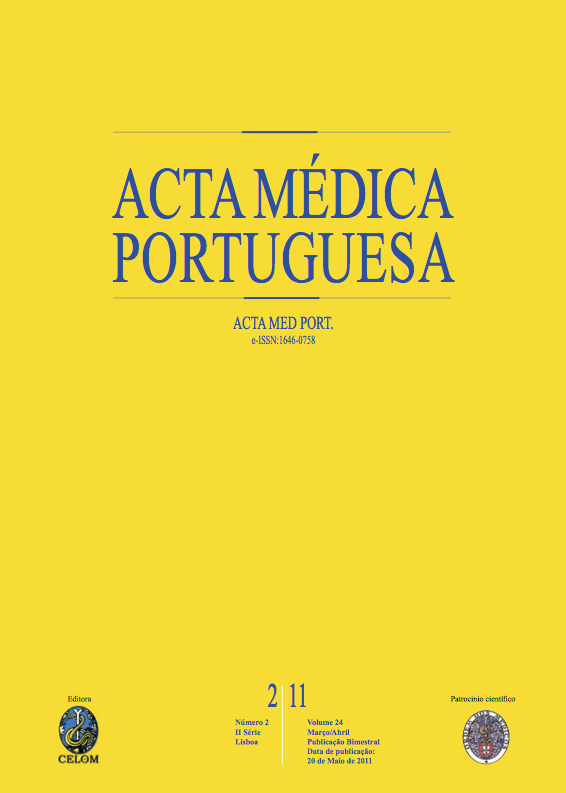Cardio-renal syndrome: the challenge in heart failure treatment.
DOI:
https://doi.org/10.20344/amp.1620Abstract
Heart failure is a chronic and progressive disease that is estimated to affect approximately 20 million people worldwide and is one of the major public health problems. Its prevalence is reaching epidemic levels with about 550,000 new cases diagnosed annually, partly due to increased life expectancy in developed countries. And as it is a systemic disease, it can cause dysfunction in various organs, but especially in the kidney. The renal failure is often associated with heart failure and, when present together, make the treatment more complex and the prognosis is worse. This is the cardio-renal syndrome. The definition of cardio-renal syndrome varies according to the working groups, and there isn't a consensus. The exact cause of deterioration of renal function and the mechanism behind this interaction are complex, multifactorial in nature and not fully known at present. The treatment available is the one used for the treatment of heart failure. It is necessary to maintain the normal function of filtration, secretion and reabsorption in kidney to have a real improvement of the clinical condition of the patient. Patients with higher risk of developing nephropathy and those who have diagnosed renal failure should have prescribed drugs that are handled very carefully. But as in many other clinical situations, there aren't perfect drugs available to treat cardio-renal syndrome and the existing ones may have serious side effects in medium/long term causing the deterioration of renal function and possibly an increased mortality. The treatment is truly challenging in patients with severe fluid overload that is refractory to diuretics. This article aims to present the existing definitions of cardio-renal syndrome, its epidemiology, describe the current knowledge about the pathophysiology and its relationship to therapeutic interventions, some actual strategies and future technologies in an attempt to preserve the kidney, mainly during the decompensation of chronic heart failure.Downloads
Downloads
How to Cite
Issue
Section
License
All the articles published in the AMP are open access and comply with the requirements of funding agencies or academic institutions. The AMP is governed by the terms of the Creative Commons ‘Attribution – Non-Commercial Use - (CC-BY-NC)’ license, regarding the use by third parties.
It is the author’s responsibility to obtain approval for the reproduction of figures, tables, etc. from other publications.
Upon acceptance of an article for publication, the authors will be asked to complete the ICMJE “Copyright Liability and Copyright Sharing Statement “(http://www.actamedicaportuguesa.com/info/AMP-NormasPublicacao.pdf) and the “Declaration of Potential Conflicts of Interest” (http:// www.icmje.org/conflicts-of-interest). An e-mail will be sent to the corresponding author to acknowledge receipt of the manuscript.
After publication, the authors are authorised to make their articles available in repositories of their institutions of origin, as long as they always mention where they were published and according to the Creative Commons license.









